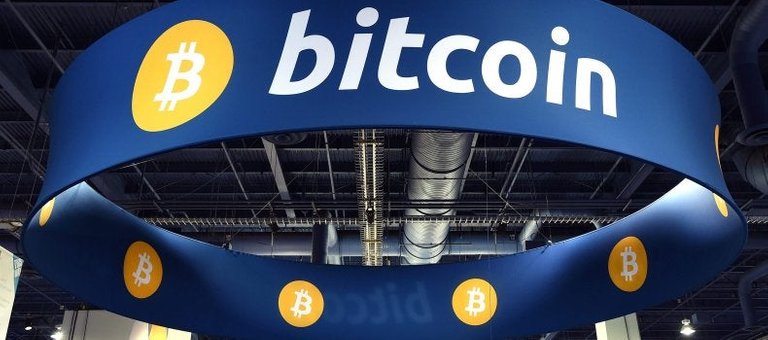
In the coming war between digital currencies, which side will your money be on?

If that question sounds crazy, meet Arthur Hayes, a former CitiGroup trader who runs BitMEX, a Hong Kong-based crypto exchange that allows eye-bulging leverage – up to 100 times – when buying and selling cryptocurrency derivatives.
Not just another Wall Street veteran, Hayes may also be one of the industry's biggest bitcoin bulls. It's a bold claim, but you might agree if you saw his newsletter – a regular synthesis of cryptocurrency news, gangster quotes, GIFs and end-of-the-world premonitions.
In fact, Hayes thinks blockchain is lighting a fuse that will ignite open combat between "true cryptocurrencies" (like bitcoin) and a new "digital fiat" controlled by central banks.
These two parallel currency systems are the inevitable outcome of his core investing thesis:
"A digital society needs digital cash."

In other words, bitcoin has brought the world cryptocurrency and institutions of all kinds will use the technology to their advantage.
Here's what Hayes sees shaking out as a result: Governments will respond to the proliferation of cryptocurrency by withdrawing banknotes from circulation, and governments will issue digital fiat that functions similarly to cryptocurrency.
But don't be fooled, according to Hayes, the similarities here are all on the surface.
Government-controlled digital fiat will be the antithesis of absolutely everything true cryptocurrency stands for. Central bank's issuance of digital money will lead to a brave new world where governments are able to monitor and control every single transaction in an economy.
And countering that overreach is the reason Hayes believes bitcoin and other cryptocurrencies have a value proposition not just today, but for years to come.
The digital combatants
When Hayes talks about digital money, he sees the scope of battle on a truly global scale, not just within the U.S., but all across Europe, in China and in India.
What all these country's governments have in common, according to Hayes, is the desire to use digital fiat as a tool of economic control.

He sees digital fiat as an instrument that will allow governments and global central banks to monitor every financial transaction, tax every sale and even lock out people from the payment system if they don't have the right government-issued licenses.
Shifting digital fiat into cryptocurrency, he reasons, will be the only way to preserve privacy. Plus, cryptocurrency will allow individuals and businesses to trade in jurisdictions where parties don't trust electronic fiat – or each other, for that matter – because they know cryptocurrencies cannot be tampered with.
Hayes said:
"If you want to have a financial presence – and not have somebody else know what you're doing at all times – then you'll use a form of cryptocurrency."

A form of cryptocurrency that's true, like bitcoin, zcash, monero or dash, he says, is one that offers users both privacy and security. These currencies, according to Hayes, have no utility other than being used as anonymous e-money.
In his mind, when a coin has additional utility it detracts from its desirability to be used as money since its value can fluctuate outside of what Hayes call its "moneyness."
One example of a currency that is not money, according to Hayes, is ether, which he says doesn't qualify as money because of its use case for distributed applications.
Not for the everyday
But there may be limits to the value propositions of even true cryptocurrencies today.
For example, Hayes believes that small value transactions are out of line with a once resounding narrative in the space, that bitcoin is – and should be – a payment system for consumers.
Hayes told CoinDesk:
"I don't think bitcoin is going to replace consumer facing activities, like buying a cup of coffee or buying a magazine at a 7-Eleven."
Hayes called bitcoin's user experience "terrible" for these purchases, because public blockchains are slower than private payment systems. So, for a trip to Starbucks, buying coffee with Apple Pay is a better experience than paying with bitcoin, he contends.
It's an interesting observation in that many of bitcoin's strongest proponents tend to envision a world where the cryptocurrency is used for everything. Even still, Hayes is just as bullish on bitcoin, as he continues to reiterate what a fantastic mechanism it is for online international payments and anonymity.
And "those trade flows are massive," he said.
But despite his bullishness, Hayes doesn't own any coins personally. According to Hayes, he believes his stake in BitMEX gives him sufficient exposure to the crypto market, since BitMEX's performance is tied to higher prices and market caps of cryptocurrencies and digital tokens.
Freedom in derivatives
And BitMEX is exactly the kind of exchange you'd imagine a guy like Arthur Hayes would dream up — a wild, intense, leveraged-fueled ride on a derivatives rocket ship that lets traders place high-powered bets with very little money down.
There's a kind of freedom in derivatives, since they're not tied to the physical delivery of any asset. Instead, derivatives bets play in a virtual world, where the only limits are the money flowing through the system.
That kind of world clearly appeals to Hayes:
"When you're in the derivatives space you can essentially create any type of exposure you want."
And he's gone for triple-digit exposure, which not only makes his company "sexy" to traders, but also comes with substantial risk.
Such colossal leverage means BitMEX cannot guarantee the settlement of its trades, meaning Hayes can't tell you for certain that you're going to get paid out at 100 cents on the dollar on a winning trade. While Hayes and his BitMEX users enjoy this risk, someone new to the crypto space might be more than a little intimidated.
Yet, Hayes believes that's not reason for swearing off the crypto scene altogether, instead he gives more level-headed advice to newcomers.
"I would tell that person to buy a small amount of bitcoin," he said, noting that bitcoin is a safer bet than most cryptocurrencies because of its $80 billion market cap.
He concluded:
"Once they are comfortable with that, start doing research and deciding for themselves which coins fit their investment risk profile."
Hi! I am a robot. I just upvoted you! I found similar content that readers might be interested in:
https://bitcoinsaltcoins.com/bitcoins-biggest-bull-arthur-hayes-isnt-long-crypto-hes-short-government/
Meh. I'm a crypto-enthusiast myself but this vision that extreme libertarians are trying to push are fundamentally flawed. Government is just another entity, a contract that public decided to put together to push for a common goal. That's literally the definition of "government", not just logically but also historically. Libertarians would like to paint government as something evil at heart, but how are the bigger players of bitcoin any different, if they use it as a tool to consolidate their power? Think this deeply.
There will be more bungholes after me!